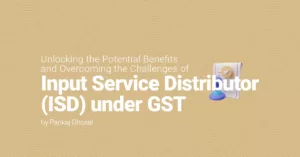The hearing serves as the centrepiece of the arbitration process. During this crucial stage, parties present their cases, evidence is examined, and arguments are delivered. Conducting the hearing effectively requires a well-defined structure, adherence to fair procedures, and a focus on achieving a just outcome.
Preparation is Paramount: Long before the gavel falls, meticulous preparation lays the groundwork for a successful hearing. This includes:
- Case Management Conference: The tribunal (sole arbitrator or panel) may convene a pre-hearing conference with the parties to discuss logistical arrangements, witness lists, timelines for submissions, and potential for pre-hearing motions. The London Court of International Arbitration (LCIA) actively encourages parties to utilize case management conferences to streamline the process and identify potential areas of agreement or narrowing of issues.
- Exchange of Briefs: Parties typically exchange written briefs outlining their arguments, legal positions, and supporting evidence. This allows the tribunal to familiarize themselves with the case beforehand and conduct a more focused hearing. In complex international arbitrations, some institutions like the Singapore International Arbitration Centre (SIAC) recommend using a “skeleton argument” within the brief, highlighting key legal points and authorities for the tribunal’s ease of reference.
- Witness Statements: Parties may exchange witness statements in advance, summarizing the expected testimony of each witness. This streamlines the hearing process and avoids surprises. The International Chamber of Commerce (ICC) encourages parties to exchange witness statements early, and some jurisdictions like Germany even mandate them by law.
- Document Production: Parties are obligated to disclose relevant documents to each other in accordance with the agreed-upon document production protocol. Institutions like the Hong Kong International Arbitration Centre (HKIAC) offer electronic document production platforms to facilitate efficient and secure exchange of voluminous documents.
Structure of the hearing: A typical arbitration hearing follows a structured agenda, although the specifics may vary depending on the complexity of the dispute and the tribunal’s preferred approach:
- Opening Statements: Each party presents a concise overview of their case, highlighting key facts, legal arguments, and desired outcome.
- Examination of Witnesses: Parties have the opportunity to call witnesses to present their testimony under oath. This may involve direct examination (by the calling party), cross-examination (by the opposing party), and re-examination (by the calling party for clarification). Some jurisdictions, like France, allow for a “juge d’instruction” system where the arbitral tribunal itself can question witnesses to clarify ambiguities or delve deeper into specific aspects of the case.
- Presentation of Evidence: Parties can submit documentary evidence, expert reports, and other relevant materials to support their arguments. The tribunal may rule on the admissibility of evidence during the hearing.
- Closing Arguments: After all evidence is presented, each party delivers a closing argument, summarizing their case and urging the tribunal to rule in their favor.
- Post-Hearing Submissions: In some cases, the tribunal may allow parties to submit post-hearing briefs addressing specific legal issues or responding to arguments raised during the hearing. The Arbitration Institute of the Stockholm Chamber of Commerce (SCC) allows for post-hearing briefs under its rules, with specific page limits to ensure conciseness.
- Reasoned Awards: Depending on the arbitration rules and the parties’ agreement, the arbitrator(s) may be required to issue a reasoned award, explaining the rationale behind their decision.
- Enforcing the Award: Arbitration awards are generally binding and enforceable. However, in certain circumstances, parties may seek to challenge or vacate an award through the appropriate legal channels.
- Early Preparation: Parties should thoroughly prepare their cases by gathering evidence, identifying key witnesses, and rehearsing presentations.
- Time Management: Effective time management is crucial in arbitration hearings. Adhere to allocated time limits and be prepared to present your case concisely and efficiently
- Strategic Objections: Raise objections judiciously and strategically, focusing on substantive issues that could impact the outcome of the hearing.
- Effective Witness Handling: Presenting witnesses confidently and eliciting clear and concise testimony can significantly impact the tribunal’s decision.
- Embrace Technology: Utilize technology to streamline communication, document exchange, and evidence presentation during the hearing.
We recently secured a favourable award for a contractor in a real estate project dispute in Haryana. Through meticulous planning, we developed a clear case narrative highlighting delay issues. Witnesses were strategically deployed to present a crystal-clear delay analysis, their testimonies quantifying and reinforcing our arguments. Furthermore, by utilizing pre-argument compilations, we ensured all our points were meticulously presented to the arbitrators, enabling them to make a well-informed decision based on the comprehensive evidence presented.
Efficiently orchestrating an arbitration hearing in India requires a nuanced approach akin to an art form. Experienced arbitration counsel can guide parties through the complexities of the hearing and ensure their rights are protected.

Vipul Garg
Vipul Garg is associated with Coinmen as lead counsel on matters related to arbitration, and has a fair amount of experience with dispute resolution, insolvency and bankruptcy along with commercial law. Coinmen Consultants is a financial consulting firm based out of New Delhi, India with Vikrant Suri, Nitin Garg and Mohit Aggarwal as its founding partners.





